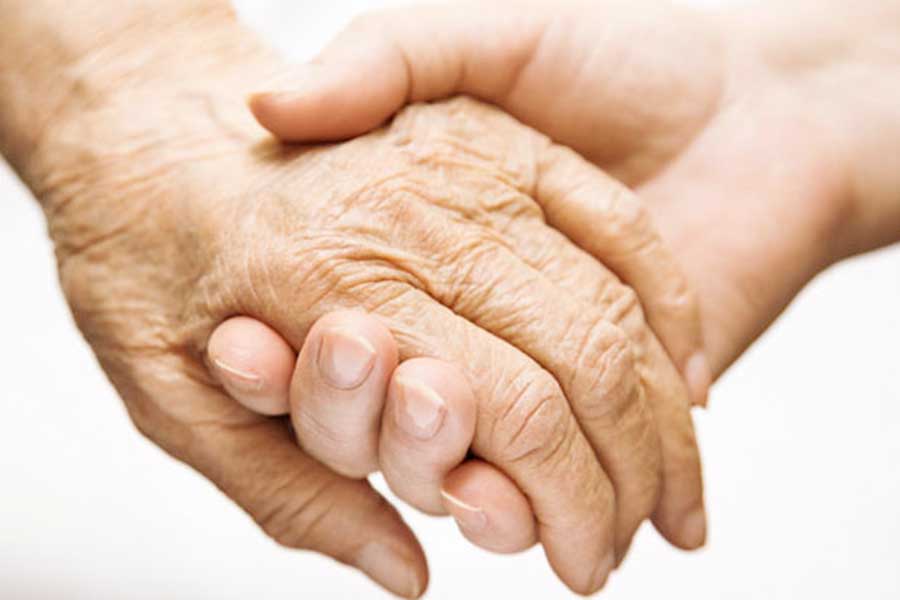What is palliative care?
Palliative care is specialized medical care for individuals with a serious illness. Palliative care focuses on providing relief from symptoms related to life-threatening illnesses such as pain, shortness of breath, nausea, anxiety, depression and so on. This type of care is available for individuals coping with different types of ailments, including cancer, dementia, congestive heart failure (CHF), chronic obstructive pulmonary disease (COPD), end-stage renal disease and many others.
Palliative care can be provided in various settings, including your home, hospitals and long-term-care facilities, such as senior-living communities and nursing homes. The overall goal of this type of care is to maximize quality of life for both the person with the serious illness and his or her support network.
What services does a palliative-care team provide?
Palliative care nurse practitioner Monique Neault most concisely describes the palliative-care team’s role as helping those with life-threatening illnesses and their families “understand and adapt” to changes occurring as a result of their illness. Palliative-care physicians focus primarily on symptom management and also advocating for individuals’ and families’ right to determine their own medical care.
In addition to assisting with symptom management, nurse practitioners provide education regarding disease progression and assist social workers in facilitating goals of care discussions. Social workers offer emotional support, assist in the completion of advance directives including living wills and power of attorney forms and, in partnership with the other team members, help those with serious illnesses and their significant others make complex medical decisions regarding ongoing medical care during hospitalization, and to plan for care beyond discharge.
Many palliative-care teams also have non-denominational chaplains and other spiritual counselors to offer spiritual support. Some teams even work with specialized pharmacists to provide recommendations for medication management. For more on palliative care, visit the Center to Advance Palliative Care at getpalliativecare.org.
How does palliative care differ from hospice?
In the simplest terms, hospice always involves palliative care, but palliative care does not always involve hospice. Palliative care can be provided to individuals with a serious illness at any point after diagnosis and can and should be offered in tandem with medical treatment.
Hospice, on the other hand, is only available for individuals with a prognosis of six months or less according to Medicare guidelines, and involves a shift in the philosophy of care to comfort instead of cure. For more on hospice care, visit the National Hospice and Palliative Care Organization at www.nhpco.org.
When two taboo subjects collide: Serious illness and sexuality
Palliative care encompasses a holistic approach to care that attempts to take into consideration all aspects of the individual’s life. However, health-care professionals often neglect sexuality as a significant aspect of life in general, and this is especially true after a terminal diagnosis. In neglecting sexuality, health-care professionals also typically avoid discussing issues related to sexual orientation and/or gender identity.
There are many reasons to explain why health-care professionals avoid initiating the discussion of sexuality with palliative-care patients. Within the past few decades, researchers have accumulated evidence to justify the importance of providing those with terminal illnesses the opportunity to discuss their sexual and intimate lives with health-care professionals. According to Cort, Monroe and Oliviere, it is clear that “when sexual care is not acknowledged as part of every health-care practitioner’s concern, the principle of holistic care is lost and there is potential for patients’ needs to go unmet.”
What are specific concerns for LGBTQ individuals with serious illnesses?
Members of the LGBTQ community have very specific needs when coping with a serious illness, but most palliative-care health-care professionals are unable to provide culturally competent, patient-centered care due to lack of training. For this and many other reasons, LGBTQ folks are often afraid to be open about their sexual orientation, gender identity and/or sexual behaviors with health-care professionals.
Fortunately and unfortunately, LGBTQ individuals are uniquely gifted at advocating for themselves and navigating imperfect systems, such as health-care institutions. Additionally, many LGBTQ persons have actively engaged in a life-long journey of identity discovery and the evolving development of one’s self-expression, and therefore this is not a new process when diagnosed with a life-limiting illness. For this reason, it is so important for palliative-care health-care professionals to build a trusting relationship and engage LGBTQ clients in life review to honor their resilience.
The prime importance of advance-care planning
To help navigate this life transition, it is also imperative for LGBTQ individuals who have been diagnosed with a serious illness to document their wishes in regards to medical care and to designate in writing the person or people they would prefer to make medical decisions on their behalf if they are no longer able to do so. As health-care professionals often fail to recognize the importance of the LGBTQ individual’s family of choice, formal documentation is the best way to relay your wishes to any member of your various medical teams.
For more on the importance of advance care planning for LGBTQ individuals, visit The National Resource Center on LGBT Aging’s website at www.lgbtagingcenter.org, and pay close attention to the section under the “Resources” tab entitled “End-of-Life Decisions.” For an example of a free Pennsylvania advance-directive form, visit www.caringinfo.org. And finally, for a thorough guide to starting conversations about end-of-life care wishes, visit The Conversation Project at theconversationproject.org.
Stephanie Chando is a kink-aware sexuality educator and palliative-care social worker at Pennsylvania Hospital with more than eight years’ experience in hospice and palliative care. Chando is also a Ph.D. candidate in Human Sexuality at Widener University focusing on the sexual and intimate lives of those nearing end of life.

